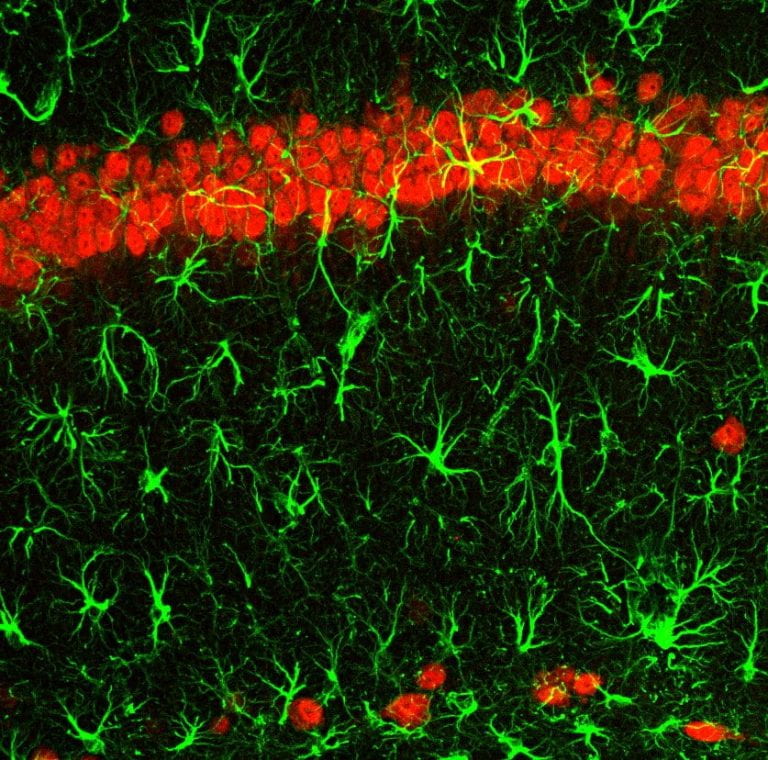Assistant Professor of Neuroscience
Research Interests
Since its inception, Neuroscience has focused on neurons as the single most relevant cellular component of the nervous system for understanding its inner workings. Yet, parts of the mammalian brain are only comprised of 10-20% of neurons. Research in my laboratory explores the role played by the remaining 80-90% of “non-neuronal” cells, called glial cells, in brain function. My lab focuses on astrocytes, a sub-class of glial cells that has the ability to respond to different forms of brain activity and release signaling molecules that influence neuronal function. The goal of my lab is to understand how astrocytes contribute to information processing in the brain, at the molecular scale, circuit level, and in behaving animals.
Rather than studying astrocytes as a standalone entity, we study the place they occupy in brain circuitry, and the role they play in brain computation, from the perspective of brain states. Mounting evidence suggest that astrocytes sense and respond to slow, volume-transmitted neuromodulators. This is interesting because these signals are released in the brain during specific vigilance states (e.g. wakefulness), or behavioral states (e.g. exploratory behavior). In parallel, it has also become clear that a single astrocyte can influence hundreds of neurons and thousands of synapses in its territory, by releasing molecules known as gliotransmitters. But the determinants that govern this secretory activity are ill-defined and its temporal dynamics are surprisingly slow. We explore the idea that astrocytes are a conditioning entity that shapes the underlying neuronal network, via gliotransmitter release, to the ongoing brain state – a notion we coined “contextual guidance”. Therefore, we study the interplay between neuromodulation and gliotransmission by asking 1) how neuromodulators affect the activity of astrocytes, 2) how neuromodulators couple to gliotransmitter release, 3) how this impacts synaptic properties and the rules of synaptic integration, 4) what are the spatial boundaries of such local relay of state-dependent information by astrocytes (i.e. is it brain region-specific or restricted to astrocytic networks?) and 5) how this participates to cognitive functions and behavioral performance.
Our line of research is inherently relevant to several brain disorders and our projects also aim at elucidating the contribution of astrocytes to neuropsychiatric conditions, such as schizophrenia and depression, and cognitive disorders associated with sleep loss.
Professional Education
- BSc: 2004-2005, Université Pierre et Marie Curie, Paris, France
- PhD: 2007-2011, Neuroscience and Pharmacology, University of Bordeaux, Bordeaux, France
- MSc: 2005-2007, Integrative Biology and Physiology, Institut Pasteur, Paris, France
Affiliations
- Neuroscience
- Hope Center for Neurological Disorders

Papouin Lab
The Papouin lab’s research program is centered on astrocyte biology: Specifically, research currently carried out in our lab aims at understanding the interplay between astrocytes and neuromodulation, its molecular underpinnings, and the roles it plays in cognition and cognitive deficits associated with neurological disorders such as Schizophrenia.
